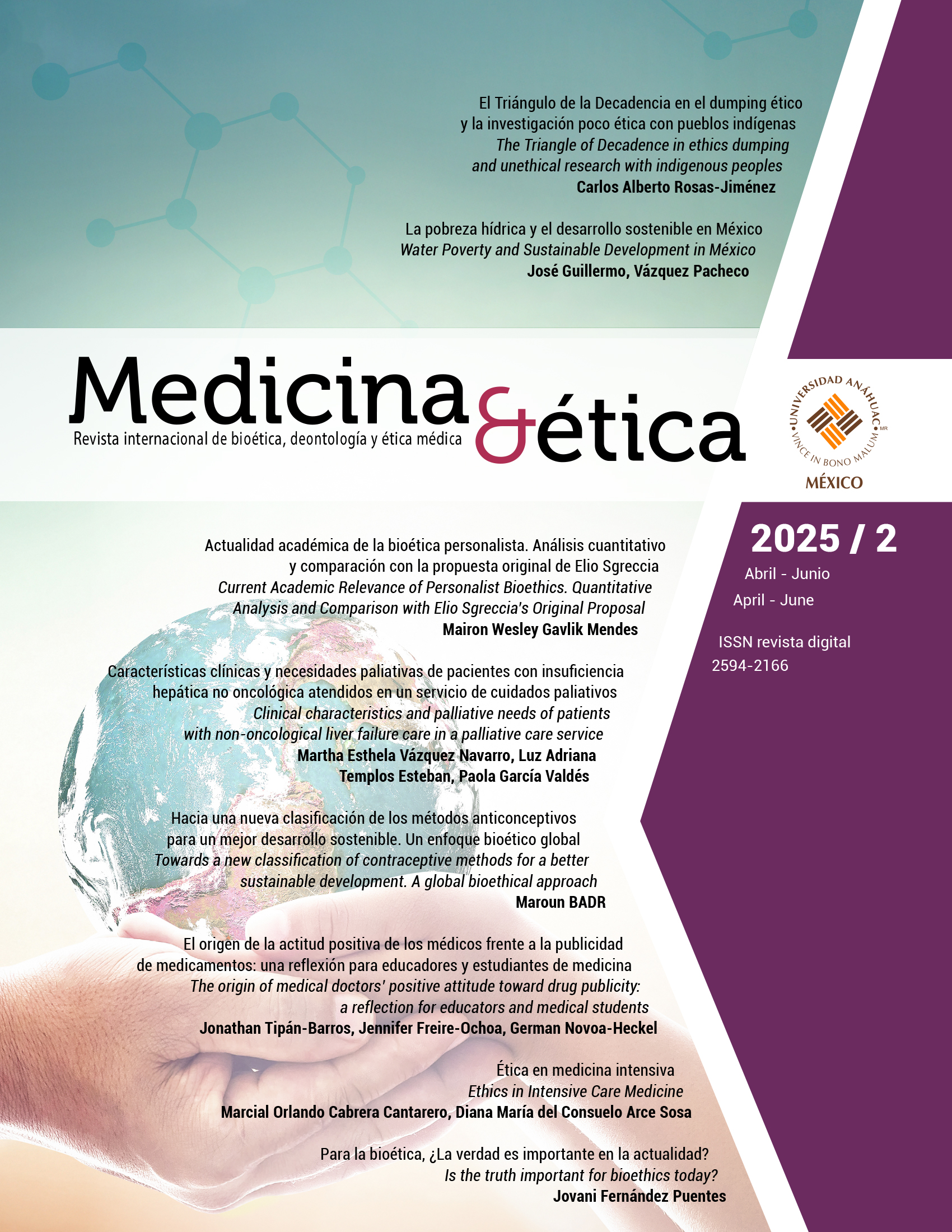Is the truth important for bioethics today?
Main Article Content
Abstract
The book Biografía de la verdad: ¿Cuándo dejó de importarnos la verdad y por qué deberíamos recuperarla? by philosopher Guillermo Hurtado seeks to show that the traditional theories on truth; coherentists, pragmatist, deflationist, nihilist have been insufficient. In response, the author offers a perspective that makes explicit the relationship between truth and life. In the face of any definition the author offers a genealogical narrative, and in the face of theories he offers the possibility of a moral pedagogy that seeks to guide understanding and practical application to the great questions “what is truth, what makes the true true?”. These questions are fundamental, for example, in the field of Bioethics the search for truth is fundamental to making informed decisions about the health or welfare of people and Guillermo Hurtado’s text suggests that truth is not just an abstract concept but is linked to life. By considering the relationship between truth and life, the possibility of thinking of this relationship as co-principles is brought into play, that is, that one is not understood without the other. This is relevant in Bioethics because it seeks to promote an understanding of human experience based on communication and charity in medical contexts.
Downloads
PLUMX Metrics
Article Details

This work is licensed under a Creative Commons Attribution-NonCommercial-ShareAlike 4.0 International License.
Medicina y Ética is distributed under a Creative Commons License Atribución-NoComercial-CompartirIgual 4.0 Internacional.
The author keeps the property rights with no restriction whatsoever and guarantees the magazine the right to be the first publication of the work. The author is free to deposit the published version in any other medium, such as an institutional archive or on his own website.

